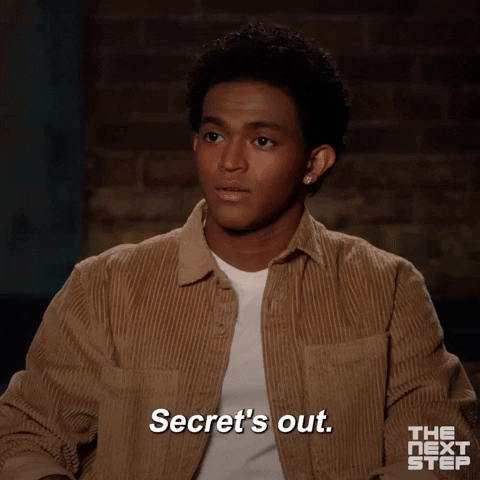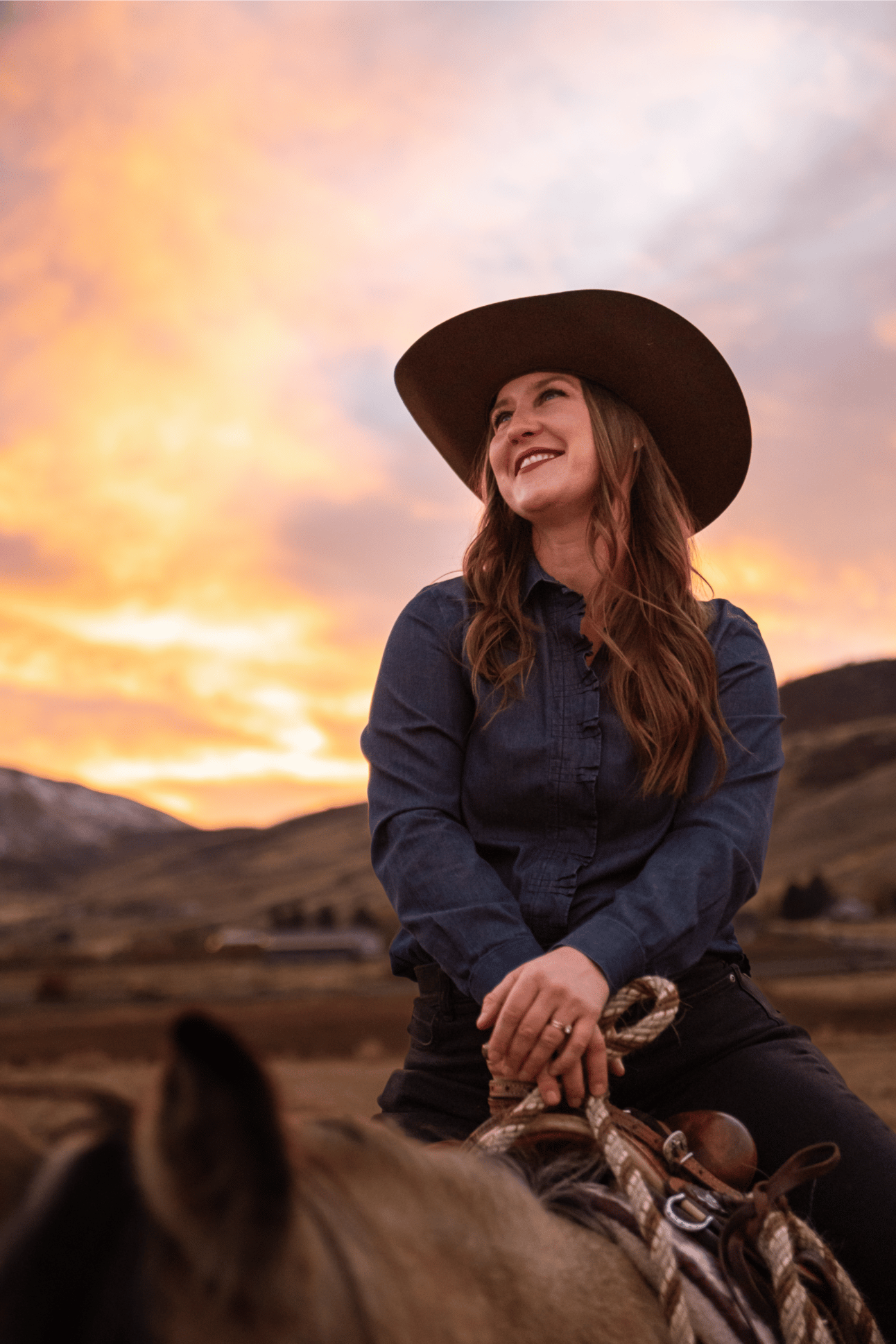- Resilient Reiner Newsletter
- Posts
- Steal My Mental Reset Ritual
Steal My Mental Reset Ritual

Hey! Prefer to listen instead of read the Newsletter? I got you! The Resilient Reiner Newsletter also comes as a podcast! 🎙️ Tune in to listen now!
Moments before riding your pattern, your breath catches. Your hand tightens on the reins. That invisible barrier between potential and performance? I know it intimately.
In the Resilient Reiner Academy's monthly office hours, we don't just talk about riding—we deconstruct the mental landscape that determines champions. Last month, a seasoned competitor messaged me and shared a challenge that echoes through every arena: “After bombing my last reining pattern, I feel like I've lost all my confidence. What strategies can help me bounce back?"
Her story isn't unique. It's a universal truth for western riders: technical skill crumbles without mental resilience. But luckily for you, one rider's breakthrough becomes a roadmap for others.
During our call, we peeled back the layers of her performance anxiety. We didn't just address symptoms; we excavated the root—a pattern of internal criticism developed over years of competitive riding. Her horse, intuitive and responsive, was reflecting her mental state in his performance long before she recognized it herself.
These aren't just coaching sessions. They're precision interventions. Tactical conversations that transform how riders think, perform, and ultimately, succeed.
If you’ve ever been curious to peek behind the curtain of professional mental performance coaching or inside RRA, this episode is for you. Every month, my Resilient Reiner Academy members gather for live "office hours" – a raw, unfiltered opportunity to dive deep into the mental challenges that can make or break a western rider's success.
What I love about these calls is the vulnerability and courage riders bring. They're not just asking questions; they're peeling back layers of mental barriers that have been holding them back, sometimes for years. And in front of a supportive community of fellow riders, we break through those limitations together.
OK, so what did I tell her?!?
And what does that mean for YOU!
“After bombing my last reining pattern, I feel like I've lost all my confidence. What strategies can help me bounce back?"
Even if you aren’t a reiner, this question is still sooo relevant! We’ve all wondered, "What can I do to improve my mental resilience after a poor performance? It’s hard not to dwell on what went wrong."
I’ll be honest, the sting of a poor performance is tough, and makes ya pucker up like you just bit into a lemon, but building resilience is all about how you frame the experience and what you do next.

As riders, we all know those moments when everything seems to fall apart. Mental resilience isn't about being superhuman or pretending disappointment doesn't exist. It's about how you choose to move forward.
Here’s your step-by-step plan: (exactly what I shared inside RRA!)
First, give yourself permission to feel frustrated. But here's the key – make it a time-limited experience. Take five minutes to really sit with those emotions. Call a riding buddy, scribble in a journal, or just let yourself acknowledge the sting of a performance that didn't go as planned. But then – and this is crucial – you've got to shift gears.
Reframing becomes your secret weapon. Instead of getting stuck in a loop of what went wrong, start asking yourself, "What is this moment trying to teach me?" Maybe your horse spooked during warm-ups, or you felt your timing was off. Each of these moments is packed with information. A missed lead change isn't a failure – it's feedback. What can you adjust in your training? What subtle communication might you improve with your horse? Were you off balance?
Here's a quick mental reset ritual I teach my riders. It might sound simple, but it's incredibly powerful. I’m literally going to teach you a Mental Reset Ritual.
Ready? Let’s go!
Take three slow, deep breaths – and I mean really slow. Focus on that exhale, letting the tension drain out with each breath. Then speak directly to yourself: "I release this ride. I am not defined by one performance." Follow this with 60 seconds of visualization – see yourself riding confidently, smoothly, connected with your horse. This trains your brain to reset and shift focus.
Now, let's talk gratitude. Even on your worst day, there's something to celebrate. Maybe you kept your composure in a chaotic arena. Perhaps your horse responded to you, even if not perfectly. These aren't small things – they're the building blocks of your growth as a rider.
Taking action is how you quiet that negative mental loop. Grab a notebook and write down one or two specific adjustments you'll make in your next training session. This isn't about beating yourself up – it's about giving yourself a concrete path forward. Control comes from action, not from dwelling.
Finally, zoom out. One ride – one day – does not define your entire riding journey. You're building something bigger here. Professional reiners, world champions – they've all had days where nothing went right. I was watching the NFR barrel racers just today – the top 15 in the world – and in one night one rider knocked down two barrels, and one rider had her reins break. The difference? They showed up again the next day. They learned. They kept riding.
Mental resilience is a skill, just like any maneuver you practice in the arena. It takes intentional work, patience with yourself, and a commitment to growth. Your most challenging rides often become the moments that transform you as a rider.
So let’s recap:
✅ Acknowledge the Disappointment (Briefly)
✅ Reframe the Experience
✅ Practice a Mental Reset Ritual
✅ Celebrate What Went Right
✅ Take Action with a Growth Plan
✅ Focus on the Big Picture
The most successful riders I work with don't just read about these strategies – they make them a tangible part of their training routine. Let me give you an example. There’s a competitive reiner I work with who, after a particularly rough show where her horse struggled with lead changes, I had her create a small ritual. She keeps a leather-bound journal in her truck specifically for post-ride reflections. Immediately after a ride (challenging or not), she'll spend 5 minutes writing – not just complaining, but strategically breaking down what happened.
Her process looks like this:
- First column: What actually happened (objective observations)
- Second column: Potential reasons why
- Third column: 1-2 specific things to adjust in next week's training
The most transformative implementation I see comes from riders who treat mental training like physical training. Just like they'd schedule time in the arena, they schedule time for mental preparation. Some riders I work with do daily 5-minute visualization exercises, imagining perfect patterns, smooth transitions, responsive horses.
One particularly powerful approach I've seen is what I call the "30-minute rule." After a challenging performance, riders give themselves exactly 30 minutes to feel frustrated. They might vent to a friend, write in a journal, or just sit with the emotion. But after those 30 minutes? It's done. They reset.
And it’s not just young riders who often struggle with this! I’ve noticed riders of all ages can have an intense emotional response where one bad run can feel like the end of the world. The most successful ones learn to separate their self-worth from their performance. They understand that a missed lead change or a spooky horse doesn't define them as a rider or a person.
The riders who implement these strategies most effectively have one thing in common: they see mental training as a skill to be developed, just like their riding skills. They're curious, they're willing to be uncomfortable, and they understand that resilience is built, not born.
If this is your vibe, then come join us inside Resilient Reiner Academy!
Ride on with confidence,
Nicole Burnett

Reply